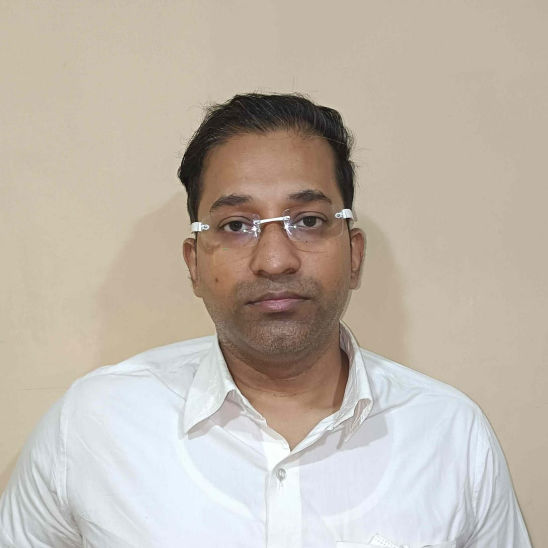When to Consider Vitamin D Testing?
Learn when to consider Vitamin D testing based on symptoms, lifestyle, and risk factors. Early detection can help prevent deficiency-related health issues and support overall wellness.

Written by Dr. Shaik Abdul Kalam
Reviewed by Dr. Vasanthasree Nair MBBS
Last updated on 20th Aug, 2025

Introduction
Vitamin D is an essential nutrient that plays a crucial role in maintaining strong bones, supporting the immune system, and regulating mood. However, many people unknowingly suffer from a deficiency, which can lead to various health problems. If you're wondering whether you should get your vitamin D levels checked, this article will guide you through the signs, risk factors, and steps to take for better health.
Why Is Vitamin D Important?
Vitamin D helps your body absorb calcium, which is vital for bone health. It also supports muscle function, reduces inflammation, and strengthens immunity. A deficiency can lead to:
Weak bones (osteoporosis or osteomalacia)
Frequent infections
Fatigue and muscle weakness
Mood disorders like depression
Since vitamin D is primarily obtained from sunlight, diet, and supplements, certain people are at higher risk of deficiency.
Signs You Might Need a Vitamin D Test
If you experience any of the following symptoms, it may be time to check your vitamin D levels:
1. Persistent Fatigue and Weakness
Feeling tired despite adequate sleep? Low vitamin D can cause chronic fatigue and muscle weakness, making daily activities difficult.
2. Bone and Back Pain
Vitamin D deficiency affects calcium absorption, leading to bone pain, especially in the lower back.
3. Frequent Illnesses
If you catch colds or infections often, your immune system might be weakened due to low vitamin D.
4. Mood Swings or Depression
Research links low vitamin D levels with mood disorders, including seasonal affective disorder (SAD) and depression.
5. Slow Wound Healing
Vitamin D helps in tissue repair. If wounds take longer to heal, it could indicate a deficiency.
6. Hair Loss
Severe hair loss (especially in women) may be linked to insufficient vitamin D.
Get Your Symptoms Checked
Who Is at Higher Risk?
Certain groups are more prone to vitamin D deficiency and should consider testing:
People with limited sun exposure (office workers, those who cover their skin for cultural/medical reasons)
Older adults (skin produces less vitamin D with age)
Dark-skinned individuals (melanin reduces vitamin D synthesis)
People with obesity (vitamin D gets stored in fat, reducing its availability)
Those with digestive disorders (Crohn’s disease, celiac disease, etc., impair absorption)
Breastfed infants (breast milk may not provide enough vitamin D)
How Is Vitamin D Testing Done?
A simple blood test (25-hydroxyvitamin D test) measures your vitamin D levels. The results will fall into one of these categories:
Deficient: Below 20 ng/mL
Insufficient: 20–29 ng/mL
Sufficient: 30–50 ng/mL (optimal for most people)
High: Above 50 ng/mL (can be harmful)
If your levels are low, your doctor may recommend supplements or dietary changes.
Consult Top Specialists for Personalised Tips
How to Improve Vitamin D Levels?
Here’s how you can improve your vitamin D levels:
1. Get Safe Sun Exposure
Spending 10–30 minutes in midday sunlight (without sunscreen) a few times a week can boost vitamin D.
2. Eat Vitamin D-Rich Foods
Include:
Fatty fish (salmon, mackerel)
Egg yolks
Fortified milk, cereals, and orange juice
3. Take Supplements (If Needed)
Your doctor may prescribe vitamin D3 supplements if your levels are very low.
4. Exercise Regularly
Physical activity supports bone health and helps maintain vitamin D levels.
When to Consult a Doctor?
If you have symptoms of deficiency or fall into a high-risk group, consider getting tested. Apollo 24|7 offers convenient vitamin D testing and expert consultations to help you stay healthy.
Don’t ignore persistent fatigue, bone pain, or frequent illnesses—your vitamin D levels could be the cause. Schedule a test or speak to a doctor on Apollo 24|7 for personalised advice.
Consult Top Specialists
Consult Top Specialists for Personalised Tips

Dr. Mohamed Azeem
General Physician/ Internal Medicine Specialist
2 Years • MBBS,MD(Internal Medicine) CCEBDM
Karaikudi
Apollo Hospitals Karaikudi, Karaikudi

Dr. Sandhya Chandel
General Physician/ Internal Medicine Specialist
16 Years • MBBS, MD (Int. Med.), IDCCM
Bilaspur
Apollo Hospitals Seepat Road, Bilaspur
(100+ Patients)

Dr. Bhukya Pavan Kalyan
General Physician
5 Years • MBBS DNB Paediatrics
Bengaluru
PRESTIGE SHANTHINIKETAN - SOCIETY CLINIC, Bengaluru

Dr. Anand Ravi
General Physician
2 Years • MBBS
Bengaluru
PRESTIGE SHANTHINIKETAN - SOCIETY CLINIC, Bengaluru

Dr. Harshendra Jaiswal
General Physician/ Internal Medicine Specialist
12 Years • MBBS , MD (General medicine)
Kolkata
108 DHANA DHANVANTARI Clinic, Kolkata
(25+ Patients)
Consult Top Specialists

Dr. Mohamed Azeem
General Physician/ Internal Medicine Specialist
2 Years • MBBS,MD(Internal Medicine) CCEBDM
Karaikudi
Apollo Hospitals Karaikudi, Karaikudi

Dr. Sandhya Chandel
General Physician/ Internal Medicine Specialist
16 Years • MBBS, MD (Int. Med.), IDCCM
Bilaspur
Apollo Hospitals Seepat Road, Bilaspur
(100+ Patients)

Dr. Bhukya Pavan Kalyan
General Physician
5 Years • MBBS DNB Paediatrics
Bengaluru
PRESTIGE SHANTHINIKETAN - SOCIETY CLINIC, Bengaluru

Dr. Anand Ravi
General Physician
2 Years • MBBS
Bengaluru
PRESTIGE SHANTHINIKETAN - SOCIETY CLINIC, Bengaluru

Dr. Harshendra Jaiswal
General Physician/ Internal Medicine Specialist
12 Years • MBBS , MD (General medicine)
Kolkata
108 DHANA DHANVANTARI Clinic, Kolkata
(25+ Patients)
.png) Buy 2, Get EXTRA OFF!
Buy 2, Get EXTRA OFF!



